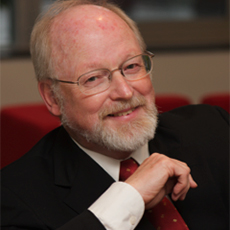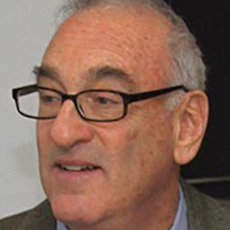Faculty
- Expand
Academic Program Finder
- Expand
Master's Degrees
- Expand MSPH in Population, Family and Reproductive Health
- Expand Master of Applied Science (MAS) in Patient Safety and Healthcare Quality
- Expand Master of Applied Science (MAS) in Population Health Management
- Expand Master of Applied Science (MAS) in Spatial Analysis for Public Health
- Expand Master of Arts and Master of Science in Public Health (MA/MSPH)
- Expand Master of Arts in Public Health Biology (MAPHB)
- Expand Master of Bioethics (MBE)
- Expand Master of Health Administration (MHA)
- Expand Master of Health Science (MHS) - Department of Biochemistry and Molecular Biology
- Expand Master of Health Science (MHS) - Department of Epidemiology
- Expand Master of Health Science (MHS) - Department of Mental Health
- Expand Master of Health Science (MHS) - Department of Molecular Microbiology and Immunology
- Expand Master of Health Science (MHS) in Health Economics and Outcomes Research
- Expand Master of Health Science (MHS) in Health, Behavior and Society
- Expand Master of Health Science (MHS)
- Expand Master of Health Science - Department of Biostatistics
- Expand Master of Health Science - Department of Population, Family and Reproductive Health
- Expand Master of Health Science Online (MHS) - Department of Population, Family and Reproductive Health
- Expand Master of Health Science in Global Health Economics
- Expand Master of Public Health (MPH)
- Expand Master of Science (ScM) - Department of Biochemistry and Molecular Biology
- Expand Master of Science (ScM) - Department of Biostatistics
- Expand Master of Science (ScM) - Department of Epidemiology
- Expand Master of Science (ScM) - Department of Molecular Microbiology and Immunology
- Expand Master of Science (ScM) in Genetic Counseling
- Expand Master of Science in Public Health (MSPH) in Health Education and Health Communication
- Expand Master of Science in Public Health (MSPH) in Health Policy
- Expand
Master of Science in Public Health - Department of International Health
- Expand Master of Science in Public Health (MSPH) in Global Disease Epidemiology and Control
- Expand Master of Science in Public Health (MSPH) in Health Systems
- Expand Master of Science in Public Health (MSPH) in Human Nutrition
- Expand Master of Science In Public Health (MSPH) In Human Nutrition – Dietitian
- Expand Master of Science in Public Health (MSPH) in Social and Behavioral Interventions
- Expand
Doctoral Degrees
- Expand Doctor of Philosophy (PhD) - Department of Biochemistry and Molecular Biology
- Expand Doctor of Philosophy (PhD) - Department of Biostatistics
- Expand Doctor of Philosophy (PhD) - Department of Epidemiology
- Expand Doctor of Philosophy (PhD) - Department of Mental Health
- Expand Doctor of Philosophy (PhD) - Department of Molecular Microbiology and Immunology
- Expand Doctor of Philosophy (PhD) - Department of Population, Family and Reproductive Health
- Expand Doctor of Philosophy (PhD) in Clinical Investigation
- Expand Doctor of Philosophy (PhD) in Health Policy and Management
- Expand Doctor of Philosophy (PhD) in Social and Behavioral Sciences
- Expand Doctor of Philosophy - Department of International Health
- Expand JHU-Tsinghua Doctor of Public Health
- Expand Doctor of Public Health (DrPH)
- Expand Combined / Dual Degrees
- Expand
Certificate Programs
- Adolescent Health Certificate Program
- Bioethics Certificate Program
- Clinical Trials Certificate Program
- Community- Based Public Health Certificate Program
- Demographic Methods Certificate Program
- Epidemiology for Public Health Professionals Certificate Program
- Evaluation: International Health Programs Certificate Program
- Frequently Asked Questions for Certificate Programs
- Gender and Health Certificate Program
- Gerontology Certificate Program
- Global Digital Health Certificate Program
- Global Health Certificate Program
- Global Health Practice Certificate Program
- Health Communication Certificate Program
- Health Disparities and Health Inequality Certificate Program
- Health Education Certificate Program
- Health Finance and Management Certificate Program
- Health and Human Rights Certificate Program
- Healthcare Epidemiology and Infection Prevention and Control Certificate Program
- Humanitarian Health Certificate Program
- Implementation Science and Research Practice Certificate Program
- Injury and Violence Prevention Certificate Program
- International Healthcare Management and Leadership Certificate Program
- Leadership for Public Health and Healthcare Certificate Program
- Lesbian, Gay, Bisexual, Transgender, and Queer (LGBTQ) Public Health Certificate Program
- Maternal and Child Health Certificate Program
- Mental Health Policy, Economics and Services Certificate Program
- Non-Degree Students General Admissions Info
- Pharmacoepidemiology and Drug Safety Certificate Program
- Population Health Management Certificate Program
- Population and Health Certificate Program
- Public Health Advocacy Certificate Program
- Public Health Economics Certificate Program
- Public Health Informatics Certificate Program
- Public Health Training Certificate for American Indian Health Professionals
- Public Mental Health Research Certificate Program
- Quality, Patient Safety and Outcomes Research Certificate Program
- Requirements for Successful Completion of a Certificate Program
- Rigor, Reproducibility, and Responsibility in Scientific Practice Certificate Program
- Risk Sciences and Public Policy Certificate Program
- Spatial Analysis for Public Health Certificate Program
- Training Certificate in Public Health
- Tropical Medicine Certificate Program
- Tuition for Certificate Programs
- Vaccine Science and Policy Certificate Program
- Expand Online Programs
- Expand Accelerated Learning Institutes
- Expand Postdoctoral Programs
- Expand Residency Programs
- Expand Graduate Training Programs in Clinical Investigation
- Expand Professional Trainings
- Expand
Training Grants
- Expand
Mixed Methods Research Training Program for the Health Sciences
- Expand About the Program
- Expand Announcements
- Expand Application Process
- Expand Contact Us
- Expand
Current Scholars
- Expand
2015 Scholars
- Jennifer I Manuel, PhD, MSW
- Joke Bradt, PhD
- Josiemer Mattei, PhD, MPH
- Justin Sanders, MD, MSc
- Linda Charmaran, PhD
- Nao Hagiwara, PhD
- Nynikka R. A. Palmer, DrPH, MPH
- Olayinka O. Shiyanbola, BPharm, PhD
- Sarah Ronis, MD, MPH
- Susan D. Brown, PhD
- Tara Lagu, MD, MPH
- Theresa Hoft, PhD
- Wynne E. Norton, PhD
- Yvonne Mensa-Wilmot, PhD, MPH
- Expand
2016 Scholars
- A. Susana Ramírez, PhD, MPH
- Animesh Sabnis, MD, MSHS
- Autumn Kieber-Emmons, MD, MPH
- Benjamin Han, MD, MPH
- Brooke A. Levandowski, PhD, MPA
- Camille R. Quinn, PhD, AM, LCSW
- Justine Wu, MD, MPH
- Kelly Aschbrenner, PhD
- Kim N. Danforth, ScD, MPH
- Loreto Leiva, PhD
- Marie Brault, PhD
- Mary E. Cooley, PhD, RN, FAAN
- Meganne K. Masko, PhD, MT-BC/L
- PhuongThao D. Le, PhD, MPH
- Rebecca Lobb, ScD, MPH
- Expand
2017 Scholars
- Allegra R. Gordon, ScD MPH
- Anita Misra-Hebert, MD MPH FACP
- Arden M. Morris, MD, MPH
- Caroline Silva, PhD
- Danielle Davidov, PhD
- Hans Oh, PhD
- J. Nicholas Dionne-Odom, PhD RN ACHPN
- Jacqueline Mogle, PhD
- Jammie Hopkins, DrPH, MS
- Joe Glass, PhD MSW
- Karen Whiteman, PhD MSW
- Katie Schultz, PhD MSW
- Rose Molina, MD
- Uriyoán Colón-Ramos, ScD MPA
- Expand
2018 Scholars
- Andrew Riley, PhD
- Byron J. Powell, PhD, LCSW
- Carrie Nieman MD, MPH
- Charles R. Rogers, PhD, MPH, MS, CHES®
- Emily E. Haroz, PhD
- Jennifer Tsui, Ph.D., M.P.H.
- Jessica Magidson, PhD
- Katherine Sanchez, PhD, LCSW
- Kelly Doran, MD, MHS
- Kiara Alvarez, PhD
- LaPrincess C. Brewer, MD, MPH
- Melissa Radey, PhD, MA, MSSW
- Sophia L. Johnson, PharmD, MPH, PhD
- Supriya Gupta Mohile, MD, MS
- Virginia McKay, PhD
- Expand
2019 Scholars
- Andrew Cohen, MD, PhD
- Angela Chen, PhD, PMHNP-BC, RN
- Christopher Salas-Wright, PhD, MSW
- Eliza Park MD, MS
- Jaime M. Hughes, PhD, MPH, MSW
- Johanne Eliacin, PhD, HSPP
- Lingrui Liu ScD MS
- Meaghan Kennedy, MD
- Nicole Stadnick, PhD, MPH
- Paula Aristizabal, MD
- Radhika Sundararajan, MD
- Sara Mamo, AuD, PhD
- Tullika Garg, MD MPH FACS
- Expand
2020 Scholars
- Allison Magnuson, DO
- Ariel Williamson PhD, DBSM
- Benita Bamgbade, PharmD, PhD
- Christopher Woodrell MD
- Hung-Jui (Ray) Tan, MD, MSHPM
- Jasmine Abrams, PhD
- Jose Alejandro Rauh-Hain, MD
- Karen Flórez, DrPH, MPH
- Lavanya Vasudevan, PhD, MPH, CPH
- Maria Garcia, MD, MPH
- Robert Brady, PhD
- Saria Hassan, MD
- Scherezade Mama, DrPH
- Yuan Lu, ScD
- Expand 2021 Scholars
- Expand
2015 Scholars
- Expand Resources
- Expand Sign Up for Our Email List
- Expand
Mixed Methods Research Training Program for the Health Sciences
- Expand Workforce Training
- Expand
Master's Degrees
- Expand Course Directory
- Expand Academic Calendar
- Expand Hybrid Campus
- Expand Convocation
- Expand Lecture Series
-
Academic Program Finder
-
Master's Degrees
- MSPH in Population, Family and Reproductive Health
- Master of Applied Science (MAS) in Patient Safety and Healthcare Quality
- Master of Applied Science (MAS) in Population Health Management
- Master of Applied Science (MAS) in Spatial Analysis for Public Health
- Master of Arts and Master of Science in Public Health (MA/MSPH)
- Master of Arts in Public Health Biology (MAPHB)
- Master of Bioethics (MBE)
- Master of Health Administration (MHA)
- Master of Health Science (MHS) - Department of Biochemistry and Molecular Biology
- Master of Health Science (MHS) - Department of Epidemiology
- Master of Health Science (MHS) - Department of Mental Health
- Master of Health Science (MHS) - Department of Molecular Microbiology and Immunology
- Master of Health Science (MHS) in Health Economics and Outcomes Research
- Master of Health Science (MHS) in Health, Behavior and Society
- Master of Health Science (MHS)
- Master of Health Science - Department of Biostatistics
- Master of Health Science - Department of Population, Family and Reproductive Health
- Master of Health Science Online (MHS) - Department of Population, Family and Reproductive Health
- Master of Health Science in Global Health Economics
- Master of Public Health (MPH)
- Master of Science (ScM) - Department of Biochemistry and Molecular Biology
- Master of Science (ScM) - Department of Biostatistics
- Master of Science (ScM) - Department of Epidemiology
- Master of Science (ScM) - Department of Molecular Microbiology and Immunology
- Master of Science (ScM) in Genetic Counseling
- Master of Science in Public Health (MSPH) in Health Education and Health Communication
- Master of Science in Public Health (MSPH) in Health Policy
-
Master of Science in Public Health - Department of International Health
- Master of Science in Public Health (MSPH) in Global Disease Epidemiology and Control
- Master of Science in Public Health (MSPH) in Health Systems
- Master of Science in Public Health (MSPH) in Human Nutrition
- Master of Science In Public Health (MSPH) In Human Nutrition – Dietitian
- Master of Science in Public Health (MSPH) in Social and Behavioral Interventions
-
Doctoral Degrees
- Doctor of Philosophy (PhD) - Department of Biochemistry and Molecular Biology
- Doctor of Philosophy (PhD) - Department of Biostatistics
- Doctor of Philosophy (PhD) - Department of Epidemiology
- Doctor of Philosophy (PhD) - Department of Mental Health
- Doctor of Philosophy (PhD) - Department of Molecular Microbiology and Immunology
- Doctor of Philosophy (PhD) - Department of Population, Family and Reproductive Health
- Doctor of Philosophy (PhD) in Clinical Investigation
- Doctor of Philosophy (PhD) in Health Policy and Management
- Doctor of Philosophy (PhD) in Social and Behavioral Sciences
- Doctor of Philosophy - Department of International Health
- JHU-Tsinghua Doctor of Public Health
- Doctor of Public Health (DrPH)
- Combined / Dual Degrees
-
Certificate Programs
- Adolescent Health Certificate Program
- Bioethics Certificate Program
- Clinical Trials Certificate Program
- Community- Based Public Health Certificate Program
- Demographic Methods Certificate Program
- Epidemiology for Public Health Professionals Certificate Program
- Evaluation: International Health Programs Certificate Program
- Frequently Asked Questions for Certificate Programs
- Gender and Health Certificate Program
- Gerontology Certificate Program
- Global Digital Health Certificate Program
- Global Health Certificate Program
- Global Health Practice Certificate Program
- Health Communication Certificate Program
- Health Disparities and Health Inequality Certificate Program
- Health Education Certificate Program
- Health Finance and Management Certificate Program
- Health and Human Rights Certificate Program
- Healthcare Epidemiology and Infection Prevention and Control Certificate Program
- Humanitarian Health Certificate Program
- Implementation Science and Research Practice Certificate Program
- Injury and Violence Prevention Certificate Program
- International Healthcare Management and Leadership Certificate Program
- Leadership for Public Health and Healthcare Certificate Program
- Lesbian, Gay, Bisexual, Transgender, and Queer (LGBTQ) Public Health Certificate Program
- Maternal and Child Health Certificate Program
- Mental Health Policy, Economics and Services Certificate Program
- Non-Degree Students General Admissions Info
- Pharmacoepidemiology and Drug Safety Certificate Program
- Population Health Management Certificate Program
- Population and Health Certificate Program
- Public Health Advocacy Certificate Program
- Public Health Economics Certificate Program
- Public Health Informatics Certificate Program
- Public Health Training Certificate for American Indian Health Professionals
- Public Mental Health Research Certificate Program
- Quality, Patient Safety and Outcomes Research Certificate Program
- Requirements for Successful Completion of a Certificate Program
- Rigor, Reproducibility, and Responsibility in Scientific Practice Certificate Program
- Risk Sciences and Public Policy Certificate Program
- Spatial Analysis for Public Health Certificate Program
- Training Certificate in Public Health
- Tropical Medicine Certificate Program
- Tuition for Certificate Programs
- Vaccine Science and Policy Certificate Program
- Online Programs
- Accelerated Learning Institutes
- Postdoctoral Programs
- Residency Programs
- Graduate Training Programs in Clinical Investigation
- Professional Trainings
-
Training Grants
-
Mixed Methods Research Training Program for the Health Sciences
- About the Program
- Announcements
- Application Process
- Contact Us
-
Current Scholars
-
2015 Scholars
- Jennifer I Manuel, PhD, MSW
- Joke Bradt, PhD
- Josiemer Mattei, PhD, MPH
- Justin Sanders, MD, MSc
- Linda Charmaran, PhD
- Nao Hagiwara, PhD
- Nynikka R. A. Palmer, DrPH, MPH
- Olayinka O. Shiyanbola, BPharm, PhD
- Sarah Ronis, MD, MPH
- Susan D. Brown, PhD
- Tara Lagu, MD, MPH
- Theresa Hoft, PhD
- Wynne E. Norton, PhD
- Yvonne Mensa-Wilmot, PhD, MPH
-
2016 Scholars
- A. Susana Ramírez, PhD, MPH
- Animesh Sabnis, MD, MSHS
- Autumn Kieber-Emmons, MD, MPH
- Benjamin Han, MD, MPH
- Brooke A. Levandowski, PhD, MPA
- Camille R. Quinn, PhD, AM, LCSW
- Justine Wu, MD, MPH
- Kelly Aschbrenner, PhD
- Kim N. Danforth, ScD, MPH
- Loreto Leiva, PhD
- Marie Brault, PhD
- Mary E. Cooley, PhD, RN, FAAN
- Meganne K. Masko, PhD, MT-BC/L
- PhuongThao D. Le, PhD, MPH
- Rebecca Lobb, ScD, MPH
-
2017 Scholars
- Allegra R. Gordon, ScD MPH
- Anita Misra-Hebert, MD MPH FACP
- Arden M. Morris, MD, MPH
- Caroline Silva, PhD
- Danielle Davidov, PhD
- Hans Oh, PhD
- J. Nicholas Dionne-Odom, PhD RN ACHPN
- Jacqueline Mogle, PhD
- Jammie Hopkins, DrPH, MS
- Joe Glass, PhD MSW
- Karen Whiteman, PhD MSW
- Katie Schultz, PhD MSW
- Rose Molina, MD
- Uriyoán Colón-Ramos, ScD MPA
-
2018 Scholars
- Andrew Riley, PhD
- Byron J. Powell, PhD, LCSW
- Carrie Nieman MD, MPH
- Charles R. Rogers, PhD, MPH, MS, CHES®
- Emily E. Haroz, PhD
- Jennifer Tsui, Ph.D., M.P.H.
- Jessica Magidson, PhD
- Katherine Sanchez, PhD, LCSW
- Kelly Doran, MD, MHS
- Kiara Alvarez, PhD
- LaPrincess C. Brewer, MD, MPH
- Melissa Radey, PhD, MA, MSSW
- Sophia L. Johnson, PharmD, MPH, PhD
- Supriya Gupta Mohile, MD, MS
- Virginia McKay, PhD
-
2019 Scholars
- Andrew Cohen, MD, PhD
- Angela Chen, PhD, PMHNP-BC, RN
- Christopher Salas-Wright, PhD, MSW
- Eliza Park MD, MS
- Jaime M. Hughes, PhD, MPH, MSW
- Johanne Eliacin, PhD, HSPP
- Lingrui Liu ScD MS
- Meaghan Kennedy, MD
- Nicole Stadnick, PhD, MPH
- Paula Aristizabal, MD
- Radhika Sundararajan, MD
- Sara Mamo, AuD, PhD
- Tullika Garg, MD MPH FACS
-
2020 Scholars
- Allison Magnuson, DO
- Ariel Williamson PhD, DBSM
- Benita Bamgbade, PharmD, PhD
- Christopher Woodrell MD
- Hung-Jui (Ray) Tan, MD, MSHPM
- Jasmine Abrams, PhD
- Jose Alejandro Rauh-Hain, MD
- Karen Flórez, DrPH, MPH
- Lavanya Vasudevan, PhD, MPH, CPH
- Maria Garcia, MD, MPH
- Robert Brady, PhD
- Saria Hassan, MD
- Scherezade Mama, DrPH
- Yuan Lu, ScD
- 2021 Scholars
-
2015 Scholars
- Resources
- Sign Up for Our Email List
-
Mixed Methods Research Training Program for the Health Sciences
- Workforce Training
-
Master's Degrees
- Course Directory
- Academic Calendar
- Hybrid Campus
- Convocation
- Lecture Series

Joseph J. Gallo, MD, MPH
Professor, Bloomberg School of Public Health
Johns Hopkins University
Joseph J. Gallo, MD, MPH, is a Professor at the Johns Hopkins University Bloomberg School of Public Health. His research concerns the form and presentation of depression in late life in community settings, particularly primary health care in the context of medical comorbidity. His work includes publications on risk factors, course, and epidemiology of psychiatric disorders, mixed methods, the form of depression in late life, health services research in mental health, the co-morbidity of depression and medical conditions, primary health care and mental health, cognitive impairment, and methodology.
Gallo currently serves as the Principal Investigator for a long-term follow-up of PROSPECT (Prevention of Suicide in Primary Care Elderly – Collaborative Trial), a randomized trial of depression management in primary care practices. He is also Principal Investigator of the Mixed Methods Research Training Program for the Health Sciences, funded by the Office of Behavioral and Social Science Research of the National Institutes of Health.
Gallo has received a Fogarty International Research Collaborative Award, a NIMH Mid-Career Investigator Award in Patient-Oriented Research, and in 2008 was the first recipient of the Steven Banks Award for mentoring in public mental health from the American Public Health Association. He is on the editorial boards of the American Journal of Geriatric Psychiatry and the Journal of Mixed Methods Research. He currently teaches a course in the School of Public Health called “The Intersection of Physical and Mental Health.”

John Creswell, PhD
Professor, Family Medicine
University of Michigan
John W. Creswell, PhD, is a professor of family medicine and senior research scientist at the Michigan Mixed Methods Program at the University of Michigan. He has authored numerous articles and 28 books on mixed methods research, qualitative research, and research design. While at the University of Nebraska-Lincoln, he held the Clifton Endowed Professor Chair, served as Director of the Mixed Methods Research Office, founded SAGE’s Journal of Mixed Methods Research, and was an adjunct professor of family medicine at the University of Michigan and a consultant to the Veterans Administration health services research center in Ann Arbor, Michigan. He was a Senior Fulbright Scholar to South Africa in 2008 and to Thailand in 2012. In 2011, he co-led a National Institute of Health working group on the “best practices of mixed methods research in the health sciences,” served as a visiting professor at Harvard’s School of Public Health, and received an honorary doctorate from the University of Pretoria, South Africa. In 2014, he was the founding President of the Mixed Methods International Research Association. In 2015, he joined the staff of Family Medicine at the University of Michigan to Co-Direct the Michigan Mixed Methods Program. In 2017, he co-authored the American Psychological Association “standards” on qualitative and mixed methods research. In 2018 his book on “Qualitative Inquiry and Research Design” won the Textbook and AcademicAuthor’s2018 McGuffey Longevity Award.

Charles Deutsch, ScD
Director, Population Health Research Program of Harvard Catalyst
Harvard University
Charles Deutsch, ScD, recently retired after more than 20 years in the faculties of Public Health and Medicine at Harvard University. He was principal investigator for a variety of domestic and global health promotion and disease prevention initiatives. Early in his career he focused on curriculum development and training programs to promote protective social relationships (CDC). Innovative work on substance abuse prevention for NIAAA led to his book, Broken Bottles, Broken Dreams: Understanding and Helping Children of Alcoholics. At Harvard, he organized and directed the blue-ribbon National Committee on Partnerships for Children’s Health to promote stronger collaborations between universities and state government (CDC), and was co-founder and deputy director of Harvard’s Prevention Research Center on Nutrition and Physical Activity. His global projects included a training program for community health workers and their supervisors in East Africa (WHO) and a ten-year national process to develop and support rigorous standards for peer education in HIV prevention in South Africa (CDC, USAID) and Eastern Europe/West Asia (UNFPA). As director of the Population Health Research Program at Harvard Catalyst, the university’s clinical and translational science center, he was PI for the evaluation of Massachusetts’ innovative Prevention and Wellness Trust Fund initiative, and helped to initiate the Mixed Methods Research Training Program for the Health Sciences (NIH). His book on the practice of peer learning, with Dr. Dirk Rohr, will be published in Germany later this year.

Tim Guetterman, PhD
Applied Research Methodologist
Assistant Professor, Family Medicine
University of Michigan
Tim Guetterman, PhD, MA, is an applied research methodologist. His research interests, scholarship, and teaching are in research methodology, namely mixed methods research and qualitative inquiry. His current methodological work is focused on integrating qualitative and quantitative data. In addition, he studies informatics technology using mixed methods health services research to improve health equity. Many of his projects are focused on cardiovascular health improvement. He provides methodological consultation on mixed methods studies across the health sciences and social sciences.

Sarah McIvor Murray, PhD
Assistant Professor
Johns Hopkins University
Sarah McIvor Murray, PhD, is an Assistant Professor in the Department of Mental Health at the Johns Hopkins Bloomberg School of Public Health (JHSPH) and a psychiatric epidemiologist and global mental health researcher by training. Broadly, her research has used multiple and mixed methods to develop and evaluate prevention and treatment interventions for mental health in low-resource and violence-affected areas. Her current research focuses on the intersection between gender-based violence, stigma, and mental health with a goal of developing strategies for intervening at both the individual and community level. In addition, Murray currently a PI or Co-I on several mixed methods projects that seek to characterize and understand mechanisms by which intersectional stigma shapes mental health and other health outcomes among diverse sexual and gender minority communities.
